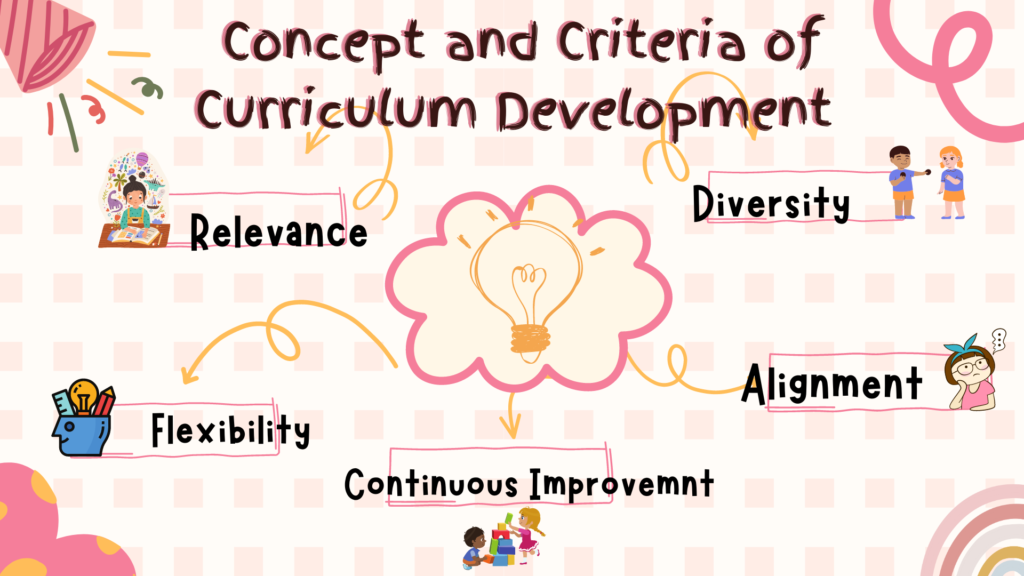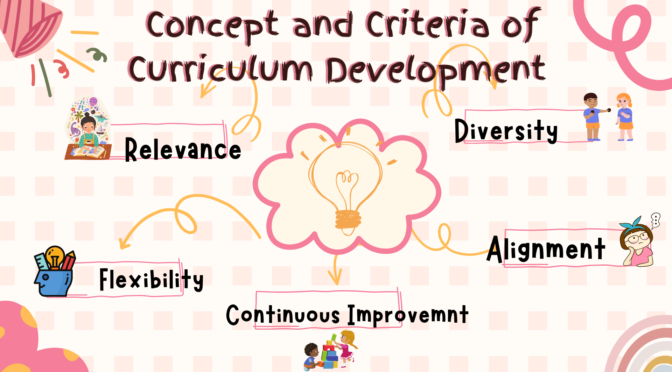Curriculum development refers to the process of designing and creating educational programs or courses. The process of curriculum development involves identifying the learning objectives, designing the instructional materials, selecting the teaching methods and assessment strategies, and evaluating the effectiveness of the curriculum.
Purpose of Curriculum Development:
The purpose of curriculum development is to create a structured and effective plan for teaching and learning that meets the needs of the learners and prepares them for their future education, work, and life. The process of curriculum development involves a variety of stakeholders, including educators, administrators, subject matter experts, and learners.
Curriculum development is an ongoing process, as the needs and interests of learners and the demands of the workforce and society are constantly evolving. Therefore, curriculum development requires continuous review and improvement to ensure that the curriculum is up-to-date, relevant, and effective.
Some of the key concept and criteria of curriculum development include:
- Relevance: The curriculum should be relevant to the needs of learners and society, and should provide them with the knowledge and skills they need to succeed in their personal and professional lives.
- Coherence: The curriculum should be well-organized and structured, with clear learning goals and objectives that build upon one another to create a cohesive learning experience.
- Diversity and inclusivity: The curriculum should be designed to meet the needs of learners from diverse backgrounds and should be inclusive of learners of different genders, races, ethnicities, abilities, and socio-economic backgrounds.
- Flexibility: The curriculum should be flexible and adaptable to the changing needs of learners, as well as to changes in the education landscape and job market.
- Assessment: The curriculum should include appropriate assessment strategies to evaluate learning outcomes and provide feedback to learners and educators.
- Continuous improvement: The curriculum should be continuously evaluated and improved based on feedback from learners, educators, and other stakeholders.
- Alignment with standards: The curriculum should align with national and/or international educational standards to ensure that learners are prepared for further education or employment opportunities.
Also Read : Tyler Model

Also Visit : Prep with Harshita

